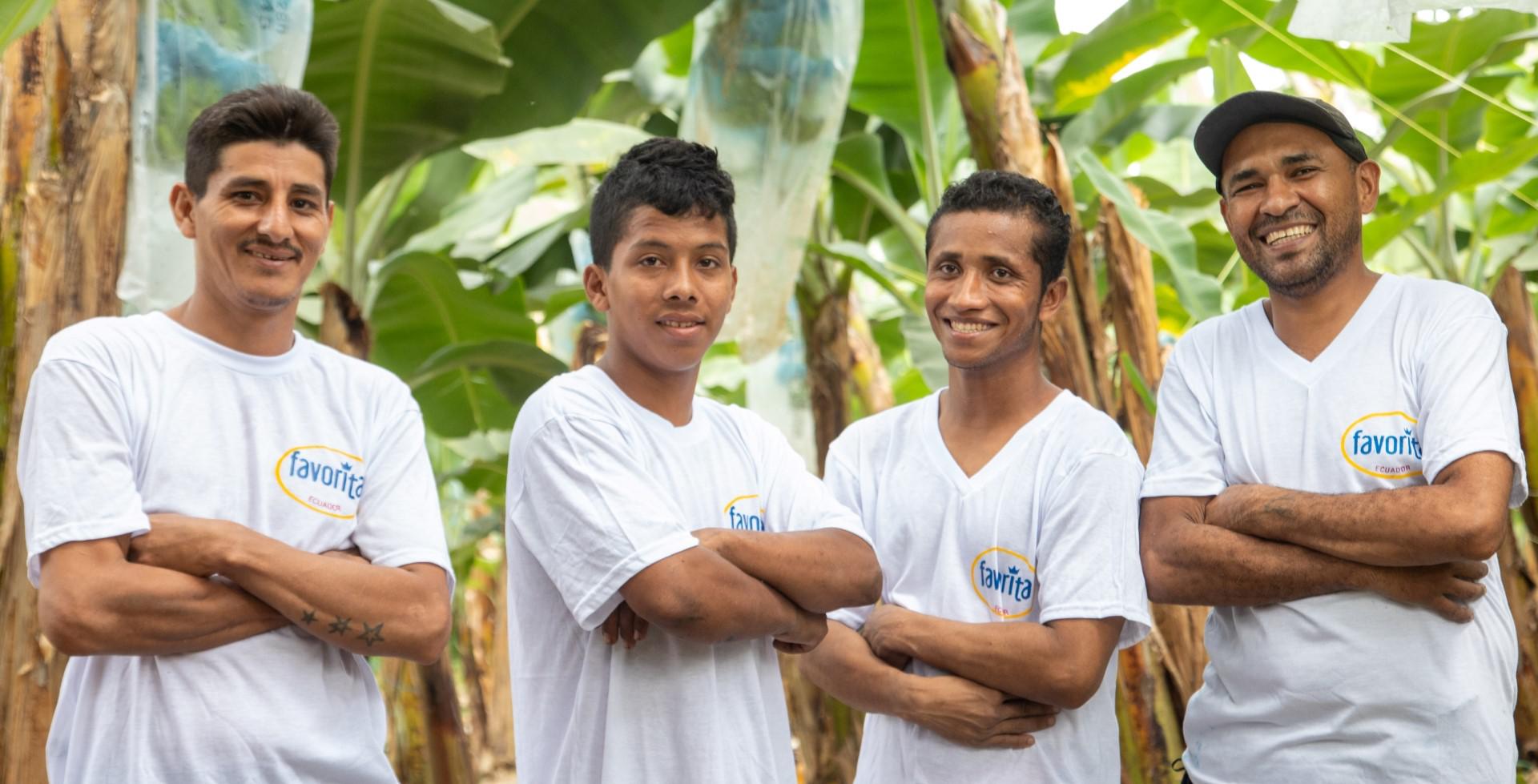Reybanpac is recognized as one of the most responsible companies in Ecuador
2025-04-02For the second consecutive year, Reybanpac was once again included in the Merco ESG Responsibility ranking, which recognized 100 Ecuadorian companies for their outstanding commitment to the well-being of their employees, customers and communities, as well as the economic development of the country.
In the 2024 report, conducted by the renowned corporate monitor MERCO and published in the Informe Empresarial magazine of El Universo newspaper, our organization climbed 10 positions with respect to the previous year's ranking. Leonardo Viteri, Vice President of Corporate Affairs, maintains that this result is due to the company's responsible environmental, social and governance management:
“We have positioned ourselves as one of the organizations that generates the most employment in Ecuador, which reflects our responsibility with the development of rural areas and their people. As a company, we also seek to ensure the well-being and professional development of our team of more than 6,000 people,” he added.
Leonardo Viteri added that Reybanpac is governed by the principles of sustainable production and compliance with the highest quality standards, which has enabled the organization to be the largest producer and second largest exporter of premium bananas in Ecuador. “Our multiple national and international certifications attest to our good social and environmental practices,” he added.
Among the milestones achieved in the last year, José Antonio Vargas, Reybanpac's general manager, highlighted the implementation of a biofactory for the use of microorganisms in crops. One of the advantages of this initiative is the reduction in the use of nematicides, which benefits the environment. By 2025, the goal is to reach zero use of nematicides in plantations.
It also highlights a circular economy program for waste reduction, through which plastic waste is used to produce materials that are used in our productive process, as well as children's games for the educational centers of the Wong Foundation. “Thanks to this initiative, to date we have donated 5 children's games: specifically, to three schools and two Child Development Centers (CDI) of the Wong Foundation,” he explained.
The company also initiated a project focused on disease prevention in banana plantations to ensure their sustainability. To this end, it invested in a UV ray system to disinfect water from surface water sources, one of the potential channels for the propagation of bacteria and fungi that cause diseases such as moko and Fusarium Race 4. José Antonio Vargas indicated that this system is 99.9% effective. “We have started with a pilot plan in six farms. By the end of 2025 we plan to cover 20 of our 43 farms with this innovative system,” he explained.
In addition, Reybanpac continues to advance in the implementation of water recirculation plants in packing plants to optimize this vital resource. Currently, 23 of 76 packing stations have this system.
In the social area, a new project focused on preventing chronic child malnutrition and teenage pregnancy began last year through an alliance between the Wong Foundation and the De Waal Foundation. As part of the AGROFUTURE macroproject, a program for banana technical assistants was also launched, aimed at young people between the ages of 18 and 29, whose first class of students will graduate in April. Through AGROFUTURE, Reybanpac contributes to the employability of young people, rural economic development and growth, and the sustainability of our sector.
“We plan to expand our initiatives for soil health care and biosecurity in our plantations. We are also focused on continuing to optimize resources through innovation and precision agriculture. Through these best practices, our intention is to continue generating a positive impact on the environment and the community,” concluded José Antonio Vargas.
